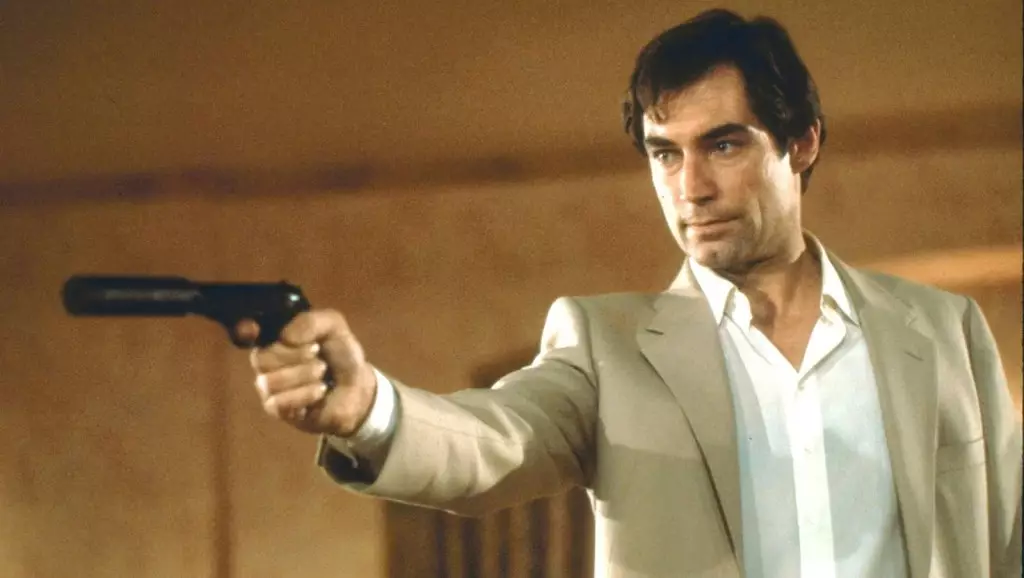Timothy Dalton has articulated a deep-seated concern about the future direction of the James Bond franchise following Amazon’s acquisition of MGM Studios. In an exclusive interview with The Daily Telegraph, Dalton, who famously portrayed 007 in “The Living Daylights” and “Licence to Kill,” lamented the potential loss of a quintessential British symbol under the stewardship of an American conglomerate. This sentiment encapsulates a widespread anxiety regarding the dilution of British cultural icons in a climate where profitability often trumps legacy.
Dalton’s apprehension is not merely about the nationality of the controlling entity but speaks volumes about the nuances and intricacies of storytelling that serve the essence of the Bond character. “It is one of the few wonderful stories we’ve got in film that is British. The leading character is British. We can call it our own,” he expressed. In a globalized entertainment industry where franchises are commodified, Dalton’s reflections beg a critical question: Can a franchise that is so deeply intertwined with British culture still thrive under the directive of a corporation that may prioritize marketability over authenticity?
The Impact of Corporate Control on Creativity
The merger between Amazon and MGM has raised eyebrows not just for its financial ramifications—estimated at a staggering $1 billion—but for its implications on creative integrity. The Broccoli family, long-time custodians of the Bond legacy, has maintained a careful approach to the brand, avoiding the lure of excessive commercialization that often characterizes Hollywood productions. Dalton emphasized this point, warning that the essence and uniqueness of Bond could suffer if handled by those who do not share a profound understanding of the character’s rich backstory.
“Barbara is one of the best women in the whole world. I think she’s fantastic,” Dalton noted, praising Barbara Broccoli’s skillful stewardship. The crux of his argument is that when the creative process is democratized to include too many external opinions, the resulting product may become diluted or generic. He articulated a genuine fear that Amazon could turn Ian Fleming’s complex and nuanced hero into mere “content” for a streaming platform, losing the depth that makes Bond an enduring figure.
One of the most critical points Dalton raised is the importance of casting a British actor in the role moving forward. He argued that Bond’s origins and the cultural significance of the stories are inherently tied to Britain, asserting, “that’s where it was born, that’s what the stories are.” This assertion brings to light larger discussions about representation, nationality, and identity in media production. As speculation mounts regarding who will take up the mantle of 007 next—with names like Aaron Taylor-Johnson and Idris Elba circulating—Dalton’s reminder serves as a poignant reminder of the roots that should be honored.
Jeff Bezos, Amazon’s founder, is reportedly engaging with audiences on social media to gauge public sentiment regarding potential actors for the iconic role. This approach of crowd-sourcing opinions may lend itself to a form of audience engagement, yet it raises questions about the artistic decision-making process. Will the next iteration of Bond be the result of strategic branding or genuine storytelling?
Amidst the uncertainties, Mike Hopkins, head of Prime Video and Amazon MGM Studios, has made affirmations about honoring Bond’s rich legacy. “Since his theatrical introduction over 60 years ago, James Bond has been one of the most iconic characters in filmed entertainment,” he stated, projecting a sense of duty to uphold the franchise’s heritage. However, amidst such declarations, the underlying sentiment from veterans like Dalton remains—will the new custodians be able to navigate the balancing act of innovation while retaining the core spirit of 007?
In closing, Dalton’s reflections evoke a sense of nostalgia intertwined with caution. While the industry expects evolution and reinvention, the essence of James Bond is something that must be preserved against the far-reaching tendencies of corporate influence. It is a tightrope walk, balancing commercial viability with artistic integrity—one that will be closely monitored by fans, critics, and newcomers alike as the franchise ventures into unknown territory.
